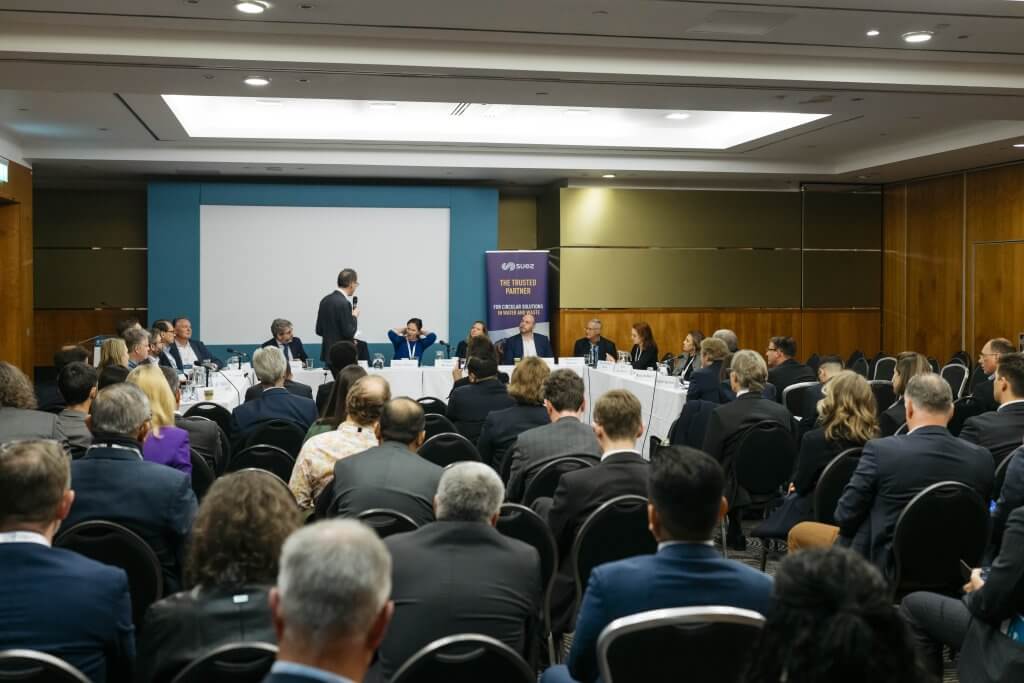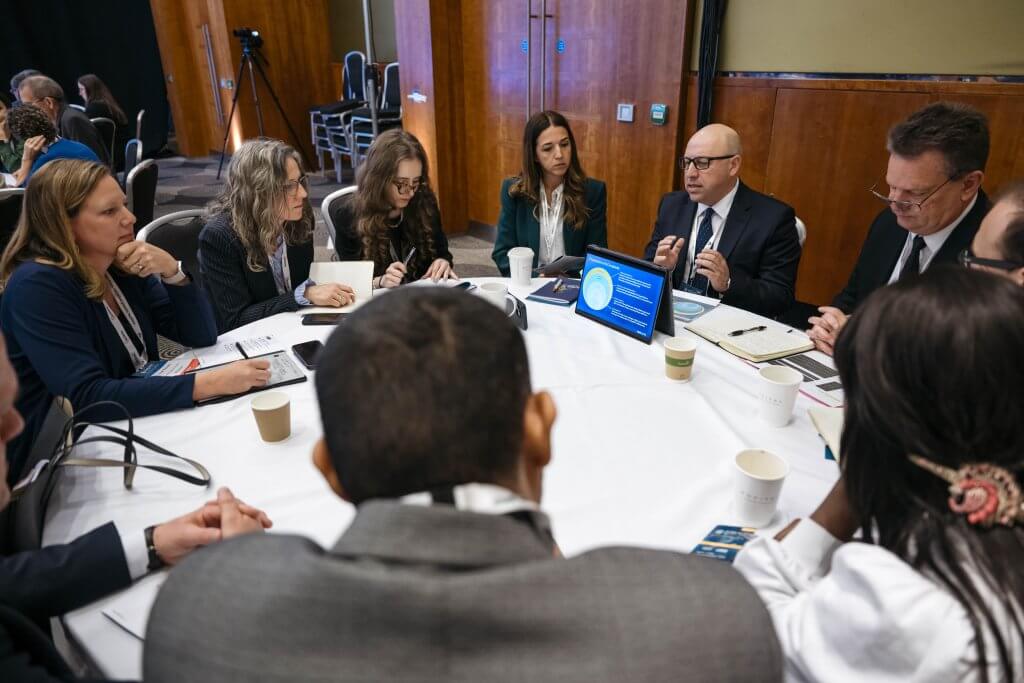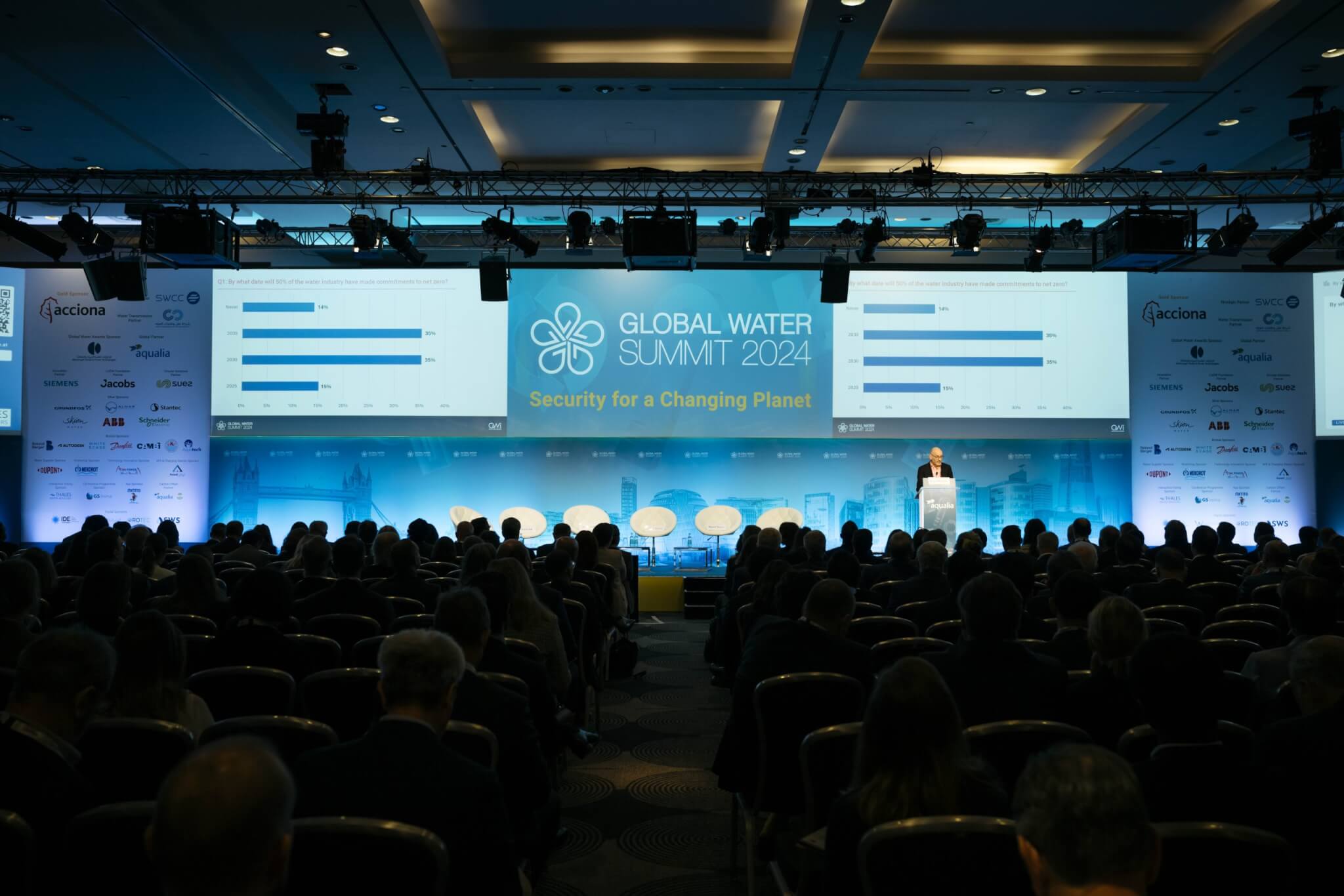Water Security for a Changing Planet: Dispatch from the Global Water Summit 2024

Ginger Rothrock has led HG Ventures’ investments in a number of water-focused startups, and has built a reputation as a leading expert in the field. Ginger was invited to attend and speak at the Global Water Summit in London, and here summarizes some of the key issues and trends in that sector.
“I want security, yeah
Without it I had a great loss, oh now
Security, yeah
And I want it at any cost, oh now”
– Otis Redding, “Security”, 1964
In April 2024, the public and private sectors convened in London to discuss the rising challenges and opportunities of deploying technologies that may help them adapt and build resilience to the changing climate, manage growing demand, and ensure water quality: At least 69% of the impact of climate change is expressed through the water cycle. The Global Water Summit, “where water meets money,” was the ideal place to convene and converse about capital strategy and market trends.
HG Ventures has been investing in water-related technologies since our inception. Our focus has been in the industrial sector, where The Heritage Group’s environmental services businesses work with large companies to create sustainable manufacturing and waste reuse practices. Wastewater valorization, in-facility water reuse, and the treatment of contaminants such as PFAS are key areas of innovation and opportunity. I attended the Global Water Summit this year to develop and build relationships with financial partners for our venture team, and potential customers for our portfolio companies looking to make water actionable.
Corporate risk from water insecurity and the opportunity within
Businesses use twice as much water as households, which is a tremendous opportunity for innovation and deployment but also a point of insecurity. Most industrial processes use water as an input, and those industries that spend the most on managing water are also the ones most exposed to water risk.

The largest volumetric water users are industries familiar to The Heritage Group – power generation, oil and gas, chemicals, and mining. Other significant users are food & beverage, textiles, and CPG–and businesses in many of these sectors are Heritage Group customers.
Global Water Intelligence (GWI) reports that currently around 3% of corporate capital expenditure goes towards water-related infrastructure and systems. But that figure is likely to grow as natural disasters such as drought and flood become more prevalent.
Technology driving increased information around water quality and associated human health are leading to regulations, requiring investment. The capital markets play an important role in financing a sustainable water system and will shift to backing businesses with effective water security.
Specifically, the venture capital sector can benefit from investing in solution providers. GWI predicts that the total capital employed in water security-related assets will rise from $3.8 trillion today to $12.6 trillion in the next ten years, an increase of more than 300%.
Key themes and opportunities for water security
We see strong momentum for the water sector and for innovations that build water security and resilience. Some of the key themes and opportunities voiced by water leaders across the corporate world include:
- Water availability: Water reuse and fresh water “creation” from desalination have the potential to make clean water unlimited. GWI reported that $10 billion is spent every year on running desalination plants, with more plants commissioned every month. We know from our customers that in-plant water reuse has financial benefits beyond the sustainability story: The water used from processing can be more easily controlled, additives in the water can be used more frequently, and the costs associated with treatment and discharge decrease dramatically.
HG Ventures has invested in automated solutions that monitor and treat contamination, enabling the compliant discharge and economical recycling of industrial water: Electramet removes heavy metals from process water using an automated membrane-free and chemical-free process. ZwitterCo, meanwhile, is deploying fouling-resistant membranes that treat challenging organic and salty streams, focusing on product purification and chemical reuse.
- Water process efficiency: Hardware and software solutions can improve the productivity of water management and treatment systems as well as proactively provide cost avoidance.
HG Ventures portfolio company, Transcend was in attendance at this year’s Summit, showcasing its software that automates the engineering design process for water treatment facilities. Design automation was a hot topic at the Summit among the public and private sectors; asset owners want to understand and weigh options in risk, carbon footprint, and cost before they build facilities. Another hot topic was the circular economy (one of my favorite investing themes). Wastewater can be valuable to mine for energy (from heat or emitted gasses), excess raw materials, or additional manufactured product.
- Water quality: With the first national drinking water standard for PFAS released just days prior, the Summit was abuzz with discussion around the new rules that test the limits of detection, capture, and treatment technology.
Those in the water ecosystem are increasingly concerned about the purity of water for industrial processes, as well as for public consumption. Maintaining and measuring good quality water is essential. For PFAS alone, GWI estimated an investment of $250 billion in Europe and North America to eliminate these substances in drinking water down to the detection limit. Alternative new technologies that can cost-effectively remove and destroy PFAS are necessary to bring that cost down to attainable levels. HG Ventures portfolio companies Puraffinity (PFAS capture) and Aclarity (PFAS destruction) are focused on meeting that challenge. In truth, there will be many different technologies needed to eradicate PFAS and other emerging contaminants across the multitude of streams.
Water as an emerging asset class
The conference provided ample opportunities for groups across the ecosystem to debate the scale of the opportunity and financial challenges of the sector.

The climate crisis has resulted in attention and investment in the sustainability sector, thus far concentrated largely on decarbonization and energy, while water has historically been an inexpensive, consistent utility, viewed by many as a human right rather than a threat or opportunity. But that can no longer be said to be the case.
No one player will have the solution for water security. Water is inherently a local problem that must be solved with a mix of technology, policy, and investment; integration and collaboration across the markets of water, energy, food, waste and finance is necessary to ensure a sustainable future.
We intend to continue to be a part of that.

